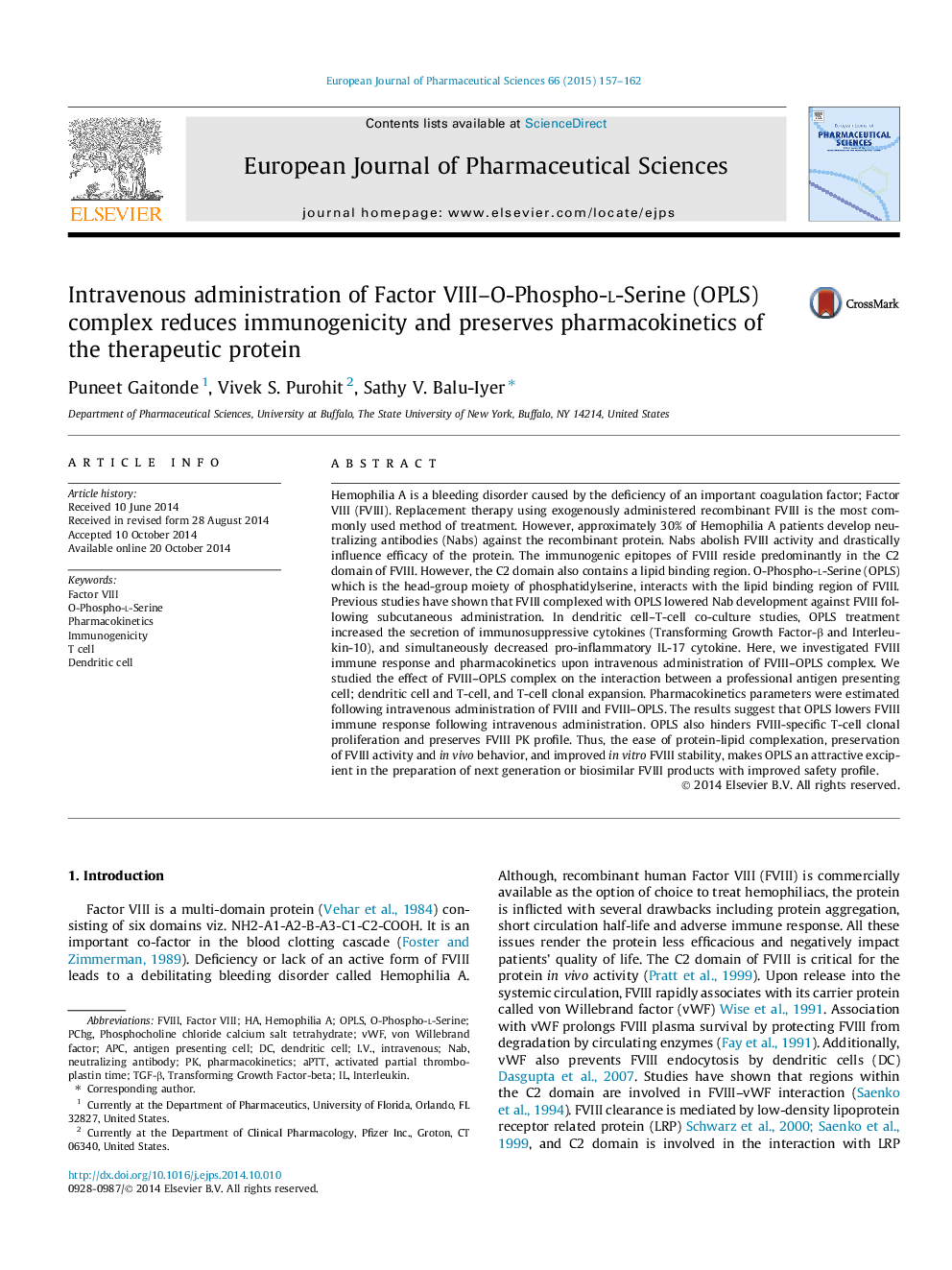| کد مقاله | کد نشریه | سال انتشار | مقاله انگلیسی | نسخه تمام متن |
|---|---|---|---|---|
| 2480438 | 1556184 | 2015 | 6 صفحه PDF | دانلود رایگان |

Hemophilia A is a bleeding disorder caused by the deficiency of an important coagulation factor; Factor VIII (FVIII). Replacement therapy using exogenously administered recombinant FVIII is the most commonly used method of treatment. However, approximately 30% of Hemophilia A patients develop neutralizing antibodies (Nabs) against the recombinant protein. Nabs abolish FVIII activity and drastically influence efficacy of the protein. The immunogenic epitopes of FVIII reside predominantly in the C2 domain of FVIII. However, the C2 domain also contains a lipid binding region. O-Phospho-L-Serine (OPLS) which is the head-group moiety of phosphatidylserine, interacts with the lipid binding region of FVIII. Previous studies have shown that FVIII complexed with OPLS lowered Nab development against FVIII following subcutaneous administration. In dendritic cell–T-cell co-culture studies, OPLS treatment increased the secretion of immunosuppressive cytokines (Transforming Growth Factor-β and Interleukin-10), and simultaneously decreased pro-inflammatory IL-17 cytokine. Here, we investigated FVIII immune response and pharmacokinetics upon intravenous administration of FVIII–OPLS complex. We studied the effect of FVIII–OPLS complex on the interaction between a professional antigen presenting cell; dendritic cell and T-cell, and T-cell clonal expansion. Pharmacokinetics parameters were estimated following intravenous administration of FVIII and FVIII–OPLS. The results suggest that OPLS lowers FVIII immune response following intravenous administration. OPLS also hinders FVIII-specific T-cell clonal proliferation and preserves FVIII PK profile. Thus, the ease of protein-lipid complexation, preservation of FVIII activity and in vivo behavior, and improved in vitro FVIII stability, makes OPLS an attractive excipient in the preparation of next generation or biosimilar FVIII products with improved safety profile.
Complexation of recombinant Factor VIII therapeutic protein with O-Phospho-L-Serine; head-group moiety of phosphatidylserine results in (A) lowering of anti-Factor VIII neutralizing antibody titers by (B) reducing CD4+ T-cell proliferation (C) without altering the pharmacokinetics of the protein in Hemophilia A mice model.Figure optionsDownload high-quality image (90 K)Download as PowerPoint slide
Journal: European Journal of Pharmaceutical Sciences - Volume 66, 23 January 2015, Pages 157–162